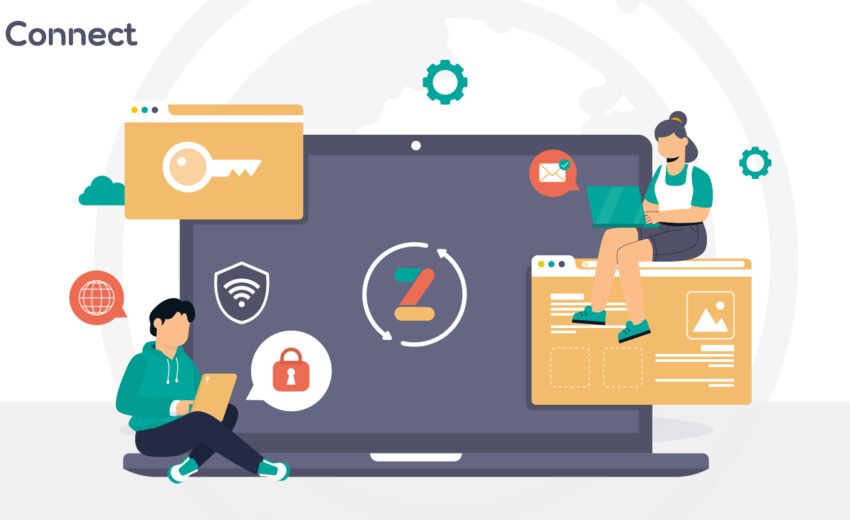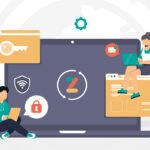
You know how nice it would be to get some help with payroll and you know that outsourcing talent is a way to do it economically. But what about that sticky question of protecting sensitive information when your team is not in the office, or even the country? It has been done for years, so how are they doing it safely? Here’s what we’ve learned.
Sourcing talent from trusted programs
Hiring employees from reputable sources, such as Pathways or other well-regarded programs that emphasize values like integrity and ethical behavior, is a helpful step in ensuring the security and honest handling of customer information. Pathways graduates, for example, are trained not only in technical skills but also in core ethical principles, fostering a strong culture of trust and responsibility.
Company-issued Computers
Providing employees with company-issued computers preloaded with necessary software ensures that devices are secure and compliant. Restricting these devices to work-only activities prevents unauthorized personal use, reducing the likelihood of security risks. (ZConnect can help facilitate this.)
Monitoring Employee Activity
Implementing activity-tracking software, such as Hubstaff or TimeClock 365, allows for real-time tracking of employee productivity and behavior. These tools can capture screenshots, log keystrokes, and monitor the use of applications, offering transparency in daily operations.
Conducting regular audits of this monitoring data can expose patterns that could indicate misuse of customer information. Automated alerts for suspicious activity, such as excessive attempts to access sensitive files or the use of unauthorized applications, can help catch potential breaches before they occur.
Ethernet Instead of Wifi
Having remote workers directly plug into ethernet instead of using wifi reduces exposures to wireless threats, provides a more stable and controlled connection, eliminates Wi-Fi encryption weaknesses reducing the risk of signal interception.
VPN Integration
Virtual Private Networks (VPNs) should be used to secure remote access, creating encrypted tunnels for data transmission. Combining VPNs with firewall technology ensures that unauthorized users cannot intercept or access payroll data, providing essential protection for remote workers handling sensitive information.
Ethical Values and Team Integration
Regular video calls, clear communication, and transparent expectations help create a sense of belonging and encourage ethical behavior. Regular engagement and feedback loops ensure that remote workers are aligned with company values and protocols and help them to feel a sense of obligation and loyalty to the company.
Secure Payroll Software
Use payroll software that has built-in security such as encryption, user authentication, and regular updates to patch vulnerabilities.
Secure Access
To protect sensitive payroll data, strict access controls must be implemented. Role-Based Access Control (RBAC) ensures employees only access data relevant to their roles. Multi-Factor Authentication (MFA) adds additional security by requiring multiple verification factors for access. Regularly reviewing and updating permissions, especially after role changes, reduces the risk of internal breaches. Monitoring access logs and conducting security audits help identify suspicious activity. Additionally, ongoing employee training and penetration testing will safeguard against social engineering attacks.
Data Encryption
Encryption is essential for protecting payroll data both in transit and at rest. Employing Advanced Encryption Standard (AES) for stored data and Secure Sockets Layer (SSL) for transmitted data ensures that unauthorized access is nearly impossible. All devices accessing payroll data should also be encrypted. Secure key management is equally critical, with regular key rotations, the use of hardware security modules (HSMs), and access control to the encryption keys to prevent compromise.
Regular Audits
Routine audits identify vulnerabilities in payroll operations. These audits, whether conducted internally or by third parties, assess both physical and digital security. Audits should also evaluate compliance with security protocols and the effectiveness of backup systems. Using automated tools for real-time monitoring and involving cross-functional teams in audit processes enhances both security and efficiency.
Employee Training
Comprehensive, regularly updated training programs can mitigate the risk by teaching employees how to handle sensitive payroll data, recognize phishing scams, and practice strong password management.
Policy Enforcement
A robust security policy outlining clear procedures for handling payroll data is crucial. Policies should cover password requirements, data storage practices, and incident response procedures. Regularly updating policies to account for emerging threats ensures the organization remains protected. Automating compliance and embedding security protocols into workflows help balance security needs with operational efficiency.
This multi-layered approach, incorporating secure access, encryption, regular audits, employee training, and ethical team integration, ensures that payroll data remains protected, confidential, and handled honestly within remote work environments.
Get Started with ZConnect
If you’re thinking, “Outsourcing sounds great, but I’m still nervous,” leave it to us. We have decades working with remote teams internationally and this is our playground. With ZConnect by your side, you’ll have the tools, support, and expertise you need to make remote work safe and secure for your team and customers.
Ready to take the next step? Schedule an appointment or send us a message and let’s make your remote team thrive.
Call now +1 (801) 697 1911




